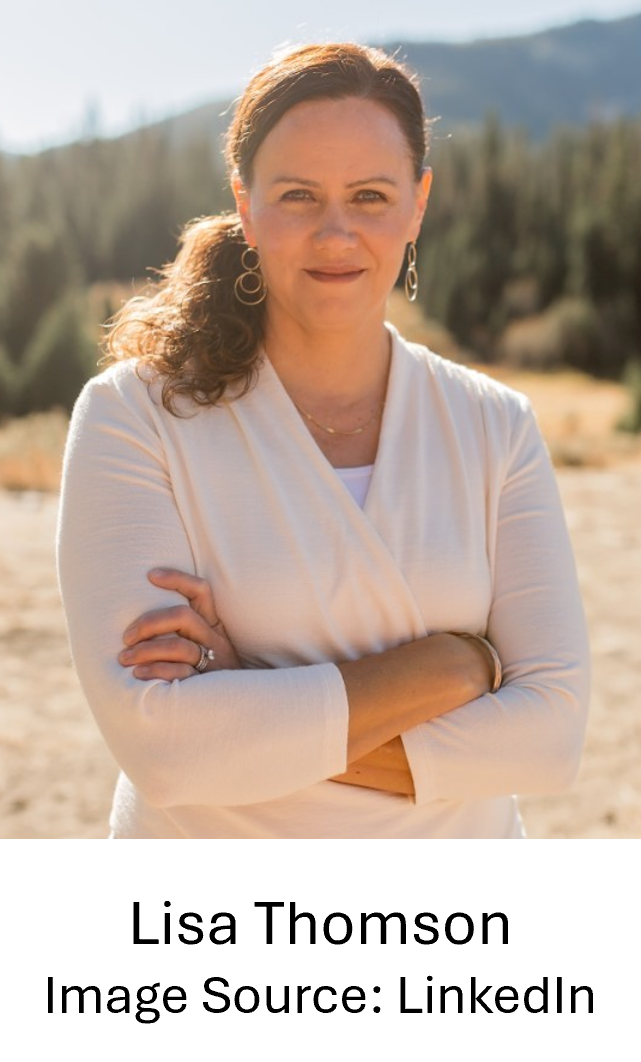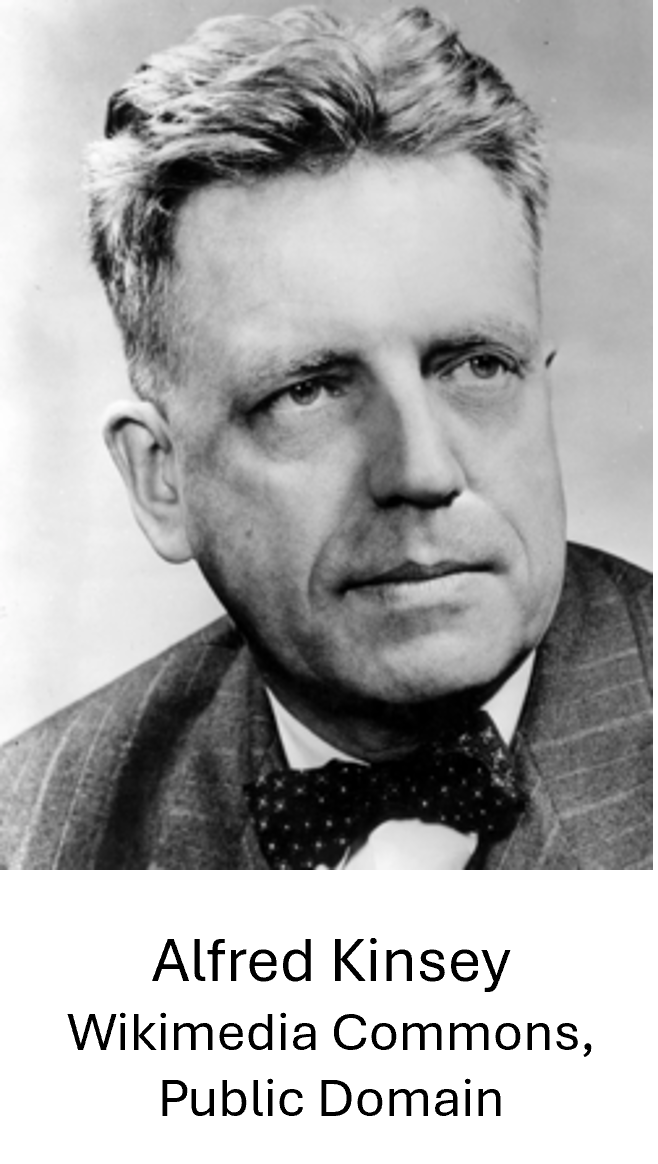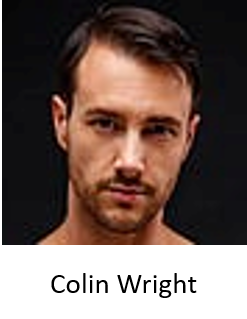Kinsey Reimagined: Cloaking Deviancy in ‘Scholarship’
“In more sinister ways, children’s involvement was never a byproduct of sexual liberation but rather the ultimate intent.” So wrote freelance journalist and mom Lisa Ann Thomson, in Public Square Magazine, January 2024. She was describing the sexual revolution that began as far back as the turn of the 20th Century, and bemoaned the many ways “the incessant sexualizing of our children from seemingly all quarters” continues unabated.
Thomson astutely noted that “20th-century theories are impacting the sexualization of children today, starting with the influence of Sigmund Freud, who posited that child development should be understood in psychosexual stages, including his Oedipal Complex theory.” She added that Freud’s protégé, Austrian psychoanalyst Wilhelm Reich, “coined the term ‘sexual revolution’ with his 1936 treatise of the same title.”
Then there was Alfred Kinsey, a zoologist whose fraudulent sex research was not exposed until years after he published two influential books, Sexual Behavior in the Human Male in 1948, and Sexual Behavior in the Human Female in 1953, which earned him the title “father of the sexual revolution.” Kinsey believed children were sexual from birth and he used pedophiles as “scientific observers” of his “experiments” involving the sexual abuse of more than 2,000 children, some of them infants.
 The late Dr. Judith Reisman played a significant role in exposing Kinsey’s flawed and even criminal research. Reisman worked tirelessly for 30 years, amassing a comprehensive body of data on Kinsey while forming a network of allies that included Phyllis Schlafly, who helped promote Reisman’s books and publicize her research. (See Education Reporter, April 2021 and The Phyllis Schlafly Report, January 1995.)
The late Dr. Judith Reisman played a significant role in exposing Kinsey’s flawed and even criminal research. Reisman worked tirelessly for 30 years, amassing a comprehensive body of data on Kinsey while forming a network of allies that included Phyllis Schlafly, who helped promote Reisman’s books and publicize her research. (See Education Reporter, April 2021 and The Phyllis Schlafly Report, January 1995.)
In 2005, the Heritage Foundation published an article titled The Kinsey Whitewash about a film then in theaters starring Liam Neeson which, the article said, portrayed Kinsey as “an embattled and troubled hero who sought only to help educate America on matters of human sexuality.”
But as Heritage pointed out: “Kinsey’s goal was to radically redefine what was considered normal and abnormal behavior. He succeeded in many respects - in large measure, ironically enough, because of his blatant disregard for scientific principles.” The article continued:
- Kinsey’s volunteers were disproportionately comprised of homosexuals, bisexuals, prostitutes, and convicts - more in his sample than in society as a whole. So unreliable were his sampling methods that famed psychologist Abraham Maslow, who expressed early interest in Kinsey’s sexuality research, refused to work with him because of his methods.
Heritage further observed that Kinsey’s primary source of information “was a habitual pedophile who kept detailed records on the hundreds of young boys and girls he had abused over many years ... Kinsey had a longstanding professional relationship with this man and included an untold amount of his records and notes in his ‘research.’”
Despite all this, the façade of Kinsey’s legitimacy continues to be maintained by the Kinsey Institute, which still operates at Indiana University in Bloomington. Since 2014, a group called Stop The Kinsey Institute has tried to raise awareness of how the “harmful work” of the institute has been given legitimacy and prestige through the granting of “consultative status” by the UN’s Economic and Social Council (ECOSOC) in April of that year.
Mainstreaming child sexualization
Almost no one would deny that children today are exposed at every turn to sexual imagery and themes, from mainstream television programming and commercials to movies, and primarily through the internet, social media, and outright pornography accessible 24-7 on smartphones, pads, and computers. Attempts by parents to protect kids by limiting their access to screens and adding porn-filtering software may help, but these controls are often outsmarted by the ever-increasing electronic sophistication of sexual purveyors.
Public Square’s Thomson reported that “by the time kids are in their teens, almost 85 percent of boys and almost 60 percent of girls have viewed pornography, most often accessed through mobile devices.” These figures have been corroborated in other reports.
And there is no respite for kids in the average public-school classroom. For decades sex education has strayed farther and farther from instruction on biological reproduction to include not only explicit sexual content, but the LGBT agenda as well. This “comprehensive sex education (CSE)” is a product of Kinsey’s deviant research, packaged by Planned Parenthood and its spawn, Sex Ed for Social Change, the rebranded SIECUS (Sexuality Information and Education Council of the United States). (See Education Reporter, November 2023 and December 2021.) SIECUS claims the 2019 rebrand followed “a multitude of organizational initiatives that highlight sex education as a vehicle for social change.” [Emphasis added.]
As Thomson wrote, “these 20th century sexologists’ views are sneaking into 21st-century spaces for children,” and this is happening in various ways, including through inappropriate library books, Drag Queen Story Hours, and attempts to normalize deviance through papers published in journals of sociology.
Disturbing new ‘scholarship’
Manhattan Institute Fellow and editor/CEO of Reality’s Last Stand, Colin Wright, described a paper published in Sage Journals (of the American Sociological Association) titled Sex & Sexualities: On Pleasure and Meaning from the Margins, which claims that “sexualities scholarship marginalizes childhood sexual pleasure, positioning children as vulnerable subjects. This article repositions childhood sexualities within a pleasure-centered, globally oriented, and power-aware frame informed by feminist, queer, and decolonial perspectives.” [Emphasis added.]
 Wright observed that “some areas of Social Justice scholarship have gone far beyond eccentricity. Many of these papers seem less like genuine research and more like opportunities for authors to dress up personal fetishes in academic jargon.”
Wright observed that “some areas of Social Justice scholarship have gone far beyond eccentricity. Many of these papers seem less like genuine research and more like opportunities for authors to dress up personal fetishes in academic jargon.”
But the fact that they are even being labeled “scholarship” is frightening. For example, On Pleasure and Meaning from the Margins, authored by researchers Deevia Bhana and Stefan Lucke from South Africa’s University of KwaZulu Natal, “calls for nothing less than the elimination of the idea of childhood sexual innocence and the ethical taboos against children engaging in sex acts.” Observers wonder if the UN’s embrace of the Kinsey Institute as a consultant played a role in fostering these notions across the globe.
Wright believes the ideas put forth in the South African paper may be viewed as “laying the intellectual groundwork for dismantling age-of-consent protections.” Indeed, such an agenda has existed for decades; again, largely as a result of the flawed Kinsey research. (See Education Reporter, January 2024.)
The latest twist in the proliferation of this aberrant thinking is the claim that protecting the innocence of children in sexual matters is “oppressive, Western, and colonial,” and therefore must “logically be dismantled.” Bhana and Lucke cite so-called “scholars” from other cultures who allegedly “‘reframe childhood sexuality from a site of peril to also a site of pleasure and positive meaning’ as a way to achieve ‘sexual and gender justice’ for children.”
Particularly troubling for Wright, as for any sensible adult, is the paper’s claim that “the notion of childhood sexual innocence is not a natural construct. It is a colonial fiction that has long erased the very thought of putting sexuality and childhood together” and admonishes that “we should view children as pleasurable beings.” The question that immediately comes to mind is whether this concept is being set forth to legitimize the deranged appetites and inclinations of pedophiles or, as a result of recent efforts to de-stigmatize the term pedophile, the inclinations of “minor-attracted persons”?
Wright correctly asserted:
- It is difficult to overstate the danger of this line of scholarship. When academics reframe childhood as a site of “pleasure and erotic desires,” they are not just playing intellectual games. They are eroding the moral and cultural guardrails that protect children from predatory adults. Papers like this serve as permission structures that prepare the ground for activists, educators, and policymakers to normalize discussions of children’s supposed sexual agency and eventually to undermine the legal frameworks that recognize children as categorically unable to consent. By labeling innocence a “colonial fiction,” the authors smuggle in the claim that protecting children is not protection at all, but a form of oppression. This is an academic rationalization for abuse.
While protections against the sexual manipulation and ill treatment of children do still exist in America through various federal initiatives and state laws, the dangers are many and on the rise. Wright pointed out that the entire thrust of sociological papers on child sexuality “is toward dismantling social and legal protections that exist precisely to safeguard children from adult sexual exploitation.”
On Pleasure and Meaning from the Margins’ authors suggest that through feminism, queer scholarship, and the understanding of “structural inequality,” societies can decolonialize the concept of innocence, which they say “recasts minors as passive objects in need of rescue.”
Public Square’s Thomson called attention to this notion in early 2024 when she warned:
- We cannot have an honest or complete conversation about the sexualization of children without including queer theory and pedagogy. Queer theory, as an academic focus, seeks to “disrupt dominant and normalizing binaries,” citing such norms as oppressive. Queer pedagogy is the practical application of queer theory in classrooms.
 Bhana and Lucke take it a step further. They criticize the already explicit CSE in schools for focusing on the risks of sexual behavior while “silencing discussions of desire,” which they call “the missing discourse of desire.” As a corrective, they endorse research suggesting that “recognizing childhood sexual agency and pleasure is a probable key to children’s well-being” and advocate for “integrat[ing] erotics into curricula.” In other words, they want explicit discussions of sexual desire and pleasure, applied to children, added to the classroom teaching.
Bhana and Lucke take it a step further. They criticize the already explicit CSE in schools for focusing on the risks of sexual behavior while “silencing discussions of desire,” which they call “the missing discourse of desire.” As a corrective, they endorse research suggesting that “recognizing childhood sexual agency and pleasure is a probable key to children’s well-being” and advocate for “integrat[ing] erotics into curricula.” In other words, they want explicit discussions of sexual desire and pleasure, applied to children, added to the classroom teaching.
For traditional minded people, this thinking is beyond the pale. But as Thomson noted, “the hope is us, parents.” Her message is that parents must nurture, influence, and supervise, while developing strong relationships with their children. “In matters of sexuality,” she wrote, “parents must be the first, most often, and most important source of information.” Children will learn, but parents will decide if they learn from them or from the internet and the public schools.
Parents should also be watchful for efforts at the federal and/or state levels to pass laws aimed at protecting children, and to encourage their legislators to create such bills or support any that may be in progress.
Reality’s Last Stand’s Wright said the fact that Bhana and Lucke’s paper was published at all “is a disgrace.” He correctly noted that what begins as an abstract idea “in niche corners of academia rarely stays there.” Rather, such ideas spread and infect other areas, from policy to education to the culture at large, much like a cancer spreads in the body.
And finally: “Every society worth defending recognizes that children cannot consent, and that preserving their innocence is a moral imperative.”
Want to be notified of new
Education Reporter content?
Your information will NOT be sold or shared and will ONLY be used to notify you of new content.
Click Here
Return to Home Page
